The highest authorities in Brazil held two crisis meetings on Sunday to manage the aftermath of revelations that several companies had sold meat unfit for consumption, including to international customers.
A large-scale police operation revealed alleged sales of out-of-date meat and salmonella contamination at the weekend and around 30 staff of meat processors were detained.
On Sunday, Brazil president Michel Temer convened all industry bodies on the one hand, and foreign ambassadors on the other hand in an effort to reassure them that ongoing investigations would deal with the problem.
Nothing will come out of these abattoirs without the inspector’s express authorisation
Temer announced that 21 factories where police had found alleged irregularities would be placed under a special inspection regime.
Agriculture Minister Blairo Maggi added that his department’s staff would be based there round the clock and “nothing will come out of these abattoirs without the inspector’s express authorisation”. The minister also published a list of the 21 companies, five of which had recently exported products to the EU.
President Temer added:
“The target of the investigation is not the agricultural inspection system, whose rigour is recognised, but a few instances of offending behaviour.” He added that of 853,000 shipments of Brazilian animal products last year, 184 were rejected by importing countries.
Farm organisations in Europe have reacted to the Brazilian meat crackdown with calls for caution in ongoing trade talks between the EU and Mercosur south American countries, with a fresh round of negotiations scheduled this week in Argentina.
These countries currently do not have the same standards as us
“We have some of the highest food safety and animal welfare standards in the world which imports to the EU must meet, otherwise our safety standards will be compromised,” said Pekka Pesonen, secretary general of the EU umbrella farm organisation COPA-COGECA.
“We have sent a letter to the EU Commission calling for our safety standards to be met and for Mercosur countries to ensure the individual traceability of cattle and for a ban on the use of meat and bone meal in poultry production. These countries currently do not have the same standards as us. This was highlighted by the case in Brazil today where over 30 top representatives in the agri-food sector were arrested for failing to comply with veterinary requirements in the beef sector,” Pesonen added.
Irish farming organisations went one step further and asked the EU to ban all Brazilian meat imports immediately.
ICSA president Paddy Kent shared the same view and said: “It is outrageous that the EU keeps giving a second chance to Brazil, even when the Food and Veterinary Office reports have continuously shown major deficiencies in Brazilian beef practices,” . He argued that a trade deal with Mercosur countries would undermine Irish and other EU beef farmers by flooding the EU with cheap, sub-standard Brazilian beef.
“Irish farmers are made to jump through hoops and are highly regulated, and the least we can expect is that their efforts are not sabotaged by cheap imports,” Kent added.
IFA president Joe Healy said his association had written to the EU Commissioner for Health and Food Safety Vytenis Andriukaitis demanding that the EU insist on European standards for all European imports and to impose a ban where this is not met.
He insisted on the need for equivalence of standards in trade negotiations including in the upcoming Brexit talks with the UK, adding that Brazil failed to meet EU standards.
“No credible or proper control system can effectively operate on the basis of no traceability, tagging, registration and national data base,” Healy said.
China, which is Brazil’s largest meat export market, has temporarily suspended imports of Brazilian meat, Bloomberg reported on Monday.
Read more
Brazil’s reputation damaged
Sinn Féin calls for halt to Brazilian beef into EU
The highest authorities in Brazil held two crisis meetings on Sunday to manage the aftermath of revelations that several companies had sold meat unfit for consumption, including to international customers.
A large-scale police operation revealed alleged sales of out-of-date meat and salmonella contamination at the weekend and around 30 staff of meat processors were detained.
On Sunday, Brazil president Michel Temer convened all industry bodies on the one hand, and foreign ambassadors on the other hand in an effort to reassure them that ongoing investigations would deal with the problem.
Nothing will come out of these abattoirs without the inspector’s express authorisation
Temer announced that 21 factories where police had found alleged irregularities would be placed under a special inspection regime.
Agriculture Minister Blairo Maggi added that his department’s staff would be based there round the clock and “nothing will come out of these abattoirs without the inspector’s express authorisation”. The minister also published a list of the 21 companies, five of which had recently exported products to the EU.
President Temer added:
“The target of the investigation is not the agricultural inspection system, whose rigour is recognised, but a few instances of offending behaviour.” He added that of 853,000 shipments of Brazilian animal products last year, 184 were rejected by importing countries.
Farm organisations in Europe have reacted to the Brazilian meat crackdown with calls for caution in ongoing trade talks between the EU and Mercosur south American countries, with a fresh round of negotiations scheduled this week in Argentina.
These countries currently do not have the same standards as us
“We have some of the highest food safety and animal welfare standards in the world which imports to the EU must meet, otherwise our safety standards will be compromised,” said Pekka Pesonen, secretary general of the EU umbrella farm organisation COPA-COGECA.
“We have sent a letter to the EU Commission calling for our safety standards to be met and for Mercosur countries to ensure the individual traceability of cattle and for a ban on the use of meat and bone meal in poultry production. These countries currently do not have the same standards as us. This was highlighted by the case in Brazil today where over 30 top representatives in the agri-food sector were arrested for failing to comply with veterinary requirements in the beef sector,” Pesonen added.
Irish farming organisations went one step further and asked the EU to ban all Brazilian meat imports immediately.
ICSA president Paddy Kent shared the same view and said: “It is outrageous that the EU keeps giving a second chance to Brazil, even when the Food and Veterinary Office reports have continuously shown major deficiencies in Brazilian beef practices,” . He argued that a trade deal with Mercosur countries would undermine Irish and other EU beef farmers by flooding the EU with cheap, sub-standard Brazilian beef.
“Irish farmers are made to jump through hoops and are highly regulated, and the least we can expect is that their efforts are not sabotaged by cheap imports,” Kent added.
IFA president Joe Healy said his association had written to the EU Commissioner for Health and Food Safety Vytenis Andriukaitis demanding that the EU insist on European standards for all European imports and to impose a ban where this is not met.
He insisted on the need for equivalence of standards in trade negotiations including in the upcoming Brexit talks with the UK, adding that Brazil failed to meet EU standards.
“No credible or proper control system can effectively operate on the basis of no traceability, tagging, registration and national data base,” Healy said.
China, which is Brazil’s largest meat export market, has temporarily suspended imports of Brazilian meat, Bloomberg reported on Monday.
Read more
Brazil’s reputation damaged
Sinn Féin calls for halt to Brazilian beef into EU




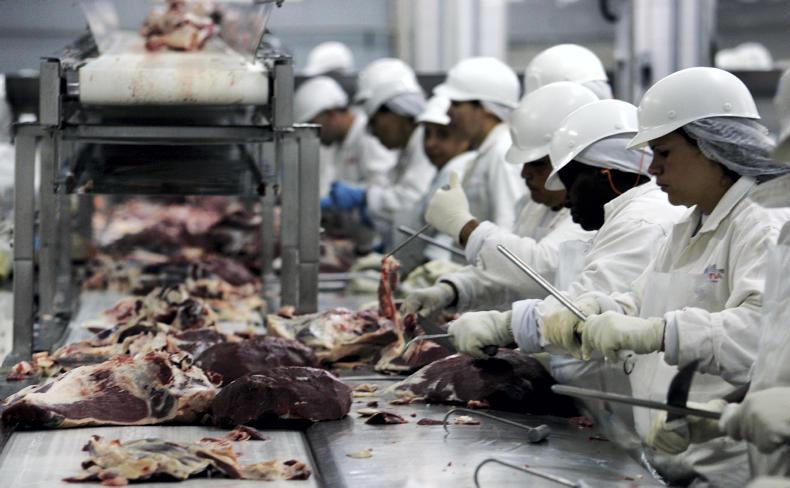
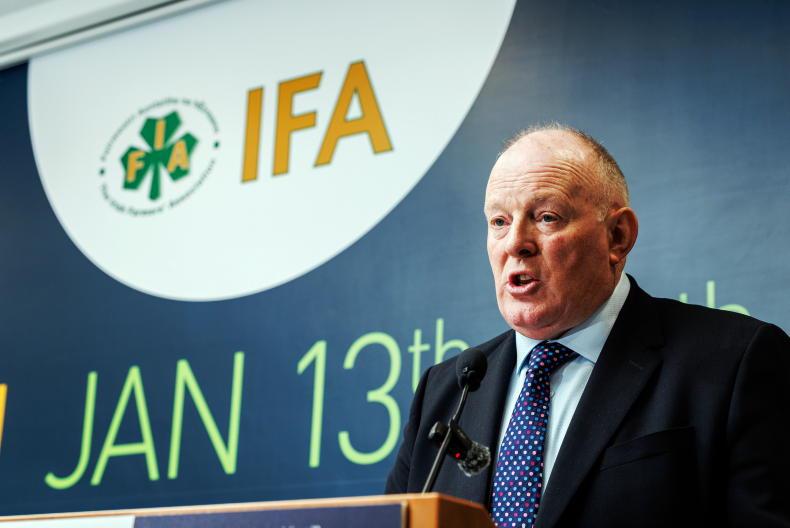

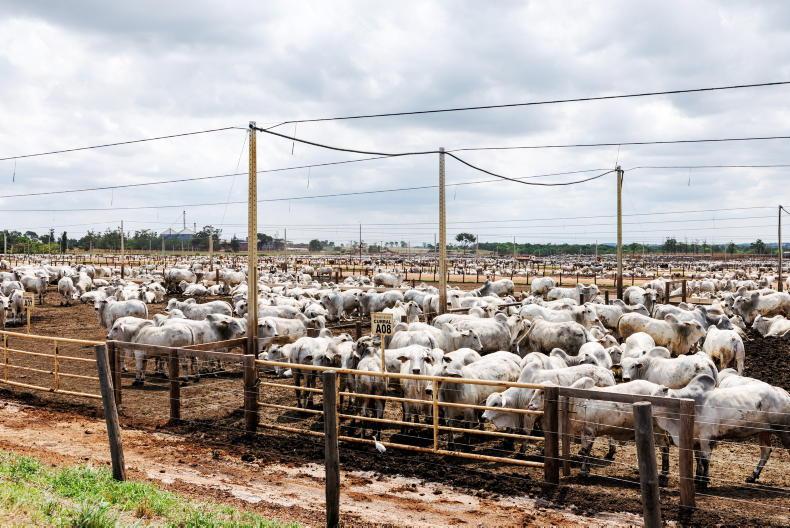
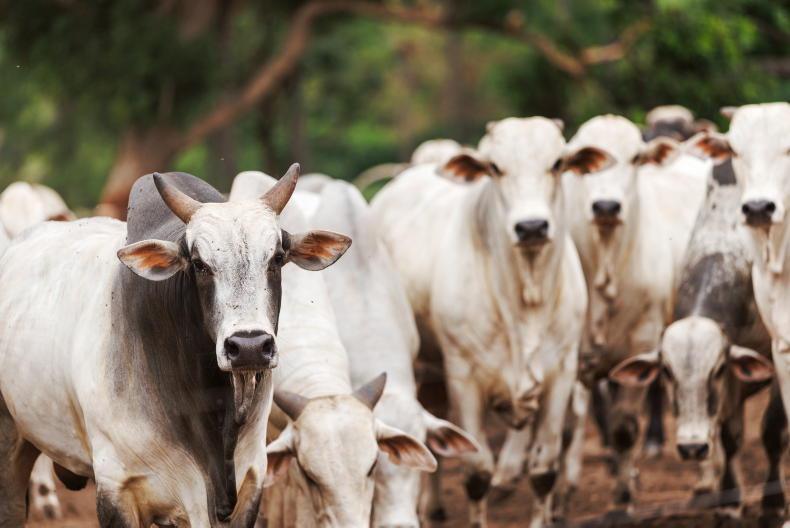
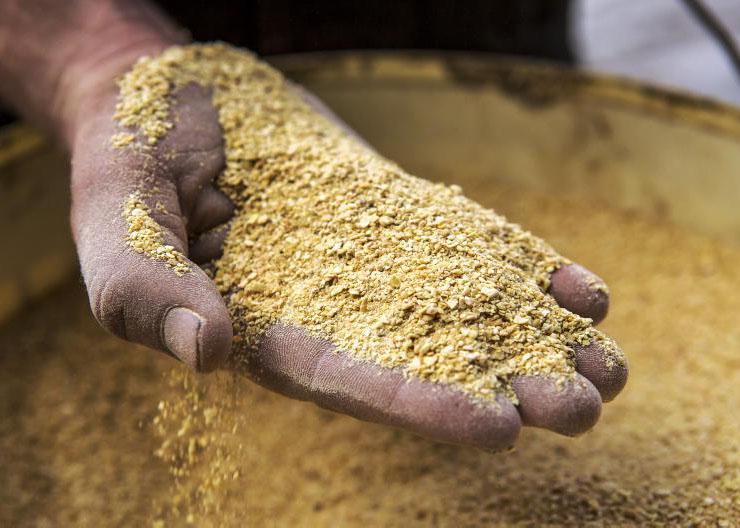
SHARING OPTIONS